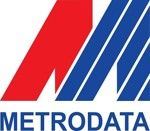A. Job Responsibilities:
1. Data Collection and Processing:
– Collect, clean, and preprocess data from various sources.
– Develop data pipelines and workflows to ensure data quality and accessibility.
2. Data Analysis and Modeling:
– Perform exploratory data analysis to identify trends, correlations, and patterns.
– Develop predictive models and algorithms using statistical techniques, machine learning, and AI.
– Evaluate model performance and refine models to improve accuracy and efficiency.
3. Collaboration:
– Work closely with cross-functional teams, including product managers, engineers, and business analysts, to understand their data needs and provide actionable insights.
– Communicate findings and insights to stakeholders through reports, dashboards, and presentations.
4. Tool and Technology Utilization:
– Utilize programming languages such as Python, R, and SQL for data manipulation and analysis.
– Use data visualization tools like Tableau, Power BI, or Matplotlib to create interactive dashboards and visual reports.
– Implement machine learning frameworks like TensorFlow, PyTorch, or Scikit-learn.
B. Skills and Qualifications:
– Education: Bachelor’s or Master’s degree in Computer Science, Statistics, Mathematics, Engineering, or a related field.
– Technical Skills: Proficiency in programming languages (Python, R), experience with databases (SQL), and familiarity with big data technologies (Hadoop, Spark).
– Analytical Skills: Strong ability to analyze complex datasets, derive insights, and create predictive models.
– Communication Skills: Ability to clearly explain technical concepts to non-technical stakeholders.
– Experience: Prior experience in a data-centric role, such as data analysis, data engineering, or data science.
C. Preferred Qualifications:
– Experience with cloud platforms like AWS, GCP, or Azure.
– Knowledge of deep learning frameworks and natural language processing (NLP).
– Experience in deploying machine learning models in production environments.











